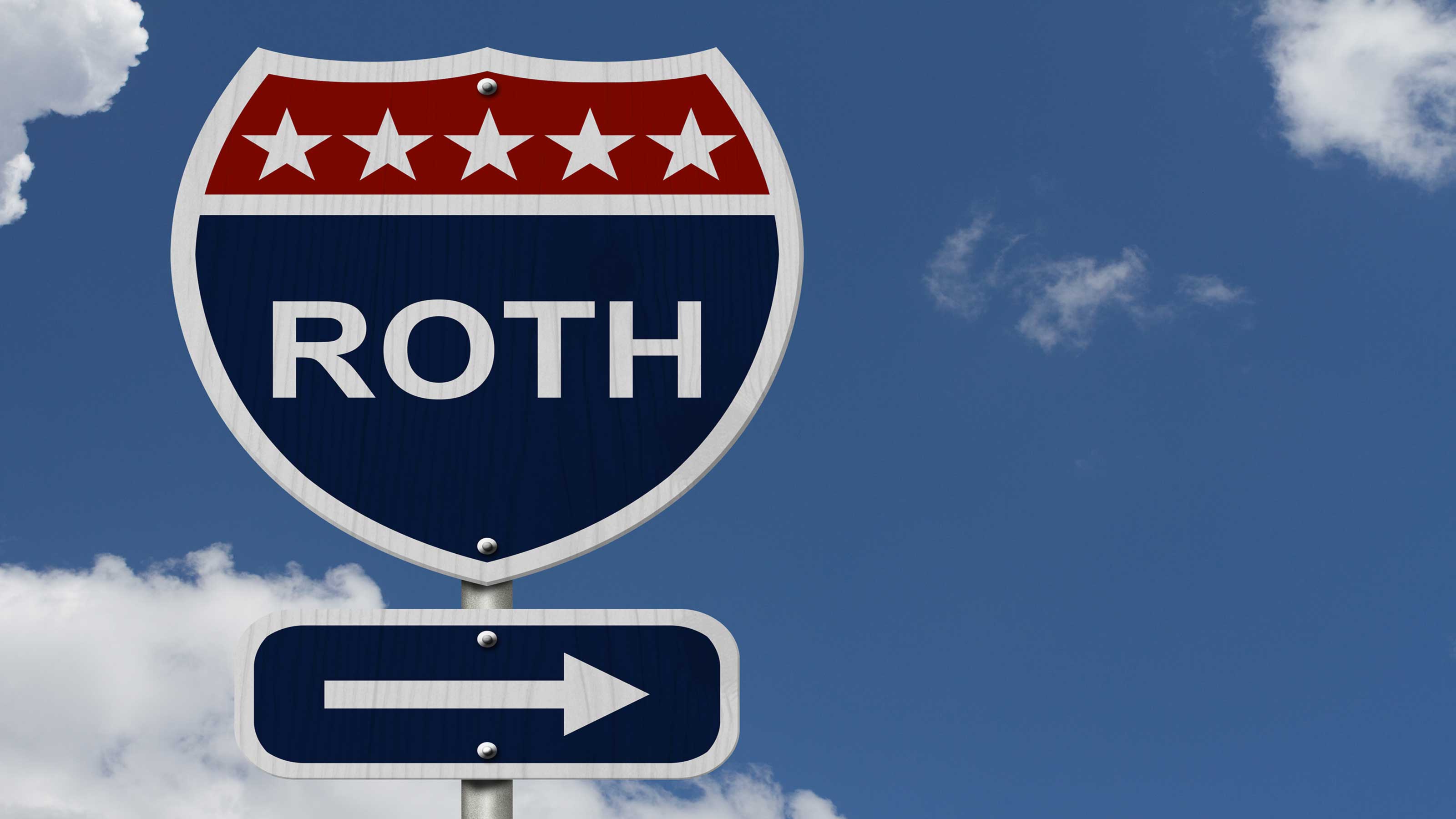Quit Your Job the Smart Way (And Save a Fortune)
Don’t pull a Slater and leave your employer behind with hard feelings or your unused benefits. Here’s a four-point checklist.

Profit and prosper with the best of Kiplinger's advice on investing, taxes, retirement, personal finance and much more. Delivered daily. Enter your email in the box and click Sign Me Up.
You are now subscribed
Your newsletter sign-up was successful
Want to add more newsletters?

Delivered daily
Kiplinger Today
Profit and prosper with the best of Kiplinger's advice on investing, taxes, retirement, personal finance and much more delivered daily. Smart money moves start here.

Sent five days a week
Kiplinger A Step Ahead
Get practical help to make better financial decisions in your everyday life, from spending to savings on top deals.

Delivered daily
Kiplinger Closing Bell
Get today's biggest financial and investing headlines delivered to your inbox every day the U.S. stock market is open.

Sent twice a week
Kiplinger Adviser Intel
Financial pros across the country share best practices and fresh tactics to preserve and grow your wealth.

Delivered weekly
Kiplinger Tax Tips
Trim your federal and state tax bills with practical tax-planning and tax-cutting strategies.

Sent twice a week
Kiplinger Retirement Tips
Your twice-a-week guide to planning and enjoying a financially secure and richly rewarding retirement

Sent bimonthly.
Kiplinger Adviser Angle
Insights for advisers, wealth managers and other financial professionals.

Sent twice a week
Kiplinger Investing Weekly
Your twice-a-week roundup of promising stocks, funds, companies and industries you should consider, ones you should avoid, and why.

Sent weekly for six weeks
Kiplinger Invest for Retirement
Your step-by-step six-part series on how to invest for retirement, from devising a successful strategy to exactly which investments to choose.
Steven Slater, the already-infamous former JetBlue flight attendant, has quickly been dubbed a "working-class hero." Prompted by an alleged altercation with a passenger, he quit his job via an expletive-filled rant over his plane’s PA system before grabbing two beers and sliding out the emergency exit and down to the tarmac, according to news reports. A lot of us have had one of those moments on the job when we felt like cursing the client, customer, reader, boss or subordinate who enraged us that second. But I wouldn’t recommend you follow Slater’s example down the emergency-evacuation chute.
For one thing, you’ll still need to, you know, eat and stuff. Without a new job lined up after you quit abruptly, you might not see another paycheck for three to six months or more. The competition in the marketplace now is high, with the national unemployment rate at 9.5% as of July, and rates for 20- to 24-year-olds and 25- to 34-year-olds at 15.6% and 9.9%, respectively.
And your job search will be even harder if you burn bridges on your way out -- or decimate them, as Mr. Slater may have done. Particularly if you’re leaving your first job, you’ll likely need to stay in touch with the people there to serve as professional references and provide other networking help. (Not all of us can quit with the flair that expands our networks by nearly 200,000 new Facebook friends in less than a week.) You should give proper notice and take the necessary time to tie up any unfinished projects.
From just $107.88 $24.99 for Kiplinger Personal Finance
Become a smarter, better informed investor. Subscribe from just $107.88 $24.99, plus get up to 4 Special Issues

Sign up for Kiplinger’s Free Newsletters
Profit and prosper with the best of expert advice on investing, taxes, retirement, personal finance and more - straight to your e-mail.
Profit and prosper with the best of expert advice - straight to your e-mail.
But no matter the job market, how and when you resign can have significant short- and long-term impacts on your finances. Take these four smart steps before handing in your resignation:
Beef up your emergency fund. You should always aim to have at least three to six months’ worth of reserves on hand. But if you want to leave your job without something new in place, you’ll want to save up much more than that. “Pack away as much as you can,” says John Ellis, a certified public accountant in Long Beach, Cal. “You can very well end up on the unemployment lines for a long time. A lot of people have been on the market for two years now.”
Ellis recommends stashing your cash in a regular savings account, where you’ll have easy access to your funds. At Bankrate.com, you can search for the banks that are currently offering the best rates. For example, American Express Bank’s high-yield savings account currently yields 1.3% per year and has no minimum balance or monthly fees. See How Much Cash You Really Need for more information on emergency funds.
Shop for health insurance. Most employers’ health plans allow you to maintain coverage through the end of the month in which you resign. So it's wise to plan your last day to fall early in the month. That essentially buys you a subsidized month of health insurance, which could be worth hundreds of dollars.
If you were at a company with 20 or more employees, you’ll be able to keep your insurance for up to 18 months after you stop working through the federal law COBRA -- except in cases of "gross misconduct" (another reason to behave better than Mr. Slater). But the cost can be biting -- you’ll have to cover both your share of the premium and the part your employer used to pay, plus administrative costs. According to the Kaiser Family Foundation, that would cost $410 a month for individual coverage, on average (and $1,137 a month for a family). “For a young person who’s healthy, I would not recommend COBRA because it can be very expensive,” says Ellis. To find out more, see this explanation of five things you need to know about COBRA.
You can shop for more-affordable coverage at eHealthInsurance.com. For example, using the site in mid August, a 25-year old, male nonsmoker in Kansas City would have found plenty of plan options for less than $100 a month from several insurers, starting at just $20 a month with Blue Cross Blue Shield. But costs vary by location: The same guy could pay up to nine times as much per month in New York City. (If you have a more complicated health situation, you can call eHealthInsurance at 800-977-8860.) You can also find a health-insurance agent near you at www.nahu.org. See Getting Health Insurance On Your Ownfor additional tips.
If you’re younger than 26, health-care reform gives you another option -- help from Mom and Dad. Starting in January 2011, insurers must allow you to be covered by your parents’ policies until age 26. They can sign you up for coverage during their employers' open-enrollment periods coming this fall. But first be sure to compare the cost of coverage under your parents’ plan with that of getting your own -- it might be less expensive to go it alone. Check out Insurance for Boomerang Kids for more information.
Drain your FSA. You may be able to extend your flexible spending account benefits under COBRA (see What Happens to Your FSA If You’re Laid Off). Or you may be facing a use-it-or-lose-it situation. So if you had been stashing, say, $100 a month in your FSA this year and had yet to make any withdrawals, quitting in August would mean saying goodbye to your $800.
Start spending as much of it as you can (perhaps the only time I’ll offer those words of advice). Consider loading up on contact lenses or new eyeglasses, or maybe even getting Lasik. (You can even use the funds for the therapy, or drug and alcohol treatment, that you need to get through your remaining days of work.) For other ideas, see Flex Plan Money: Use It or Lose It and 7 Smart Uses for You Flex-Account Money. You have to pay for the products or services before your last day on the job, but you can file for reimbursement later.
Make a plan for your 401(k). If you have $5,000 or more in your account, you can leave the funds right where they are long after you walk out the door. But you're probably better off taking them with you. (Well, not literally. Cashing out will cost you in early-withdrawal penalties.) You won’t be able to make additional contributions to the account once you leave the company, and being young, you may not have already accumulated such a huge amount that it could grow substantially on its own. Plus, you might miss notices from your former employer about any changes to the plan, such as new fund offerings or additional fees. You can roll over the account balance into an IRA -- traditional or Roth -- or your next employer’s 401(k). In an IRA, you’ll get the benefit of more investment options.
And remember: No matter how frustrated you get at work, you’re not alone. Many of us are just like you, trying to get through the day without falling apart. If you decide that you’re ready to make an exit, take your time to get everything in order on your way out. After all, not many workplaces come with built-in escape hatches.
Profit and prosper with the best of Kiplinger's advice on investing, taxes, retirement, personal finance and much more. Delivered daily. Enter your email in the box and click Sign Me Up.

Rapacon joined Kiplinger in October 2007 as a reporter with Kiplinger's Personal Finance magazine and became an online editor for Kiplinger.com in June 2010. She previously served as editor of the "Starting Out" column, focusing on personal finance advice for people in their twenties and thirties.
Before joining Kiplinger, Rapacon worked as a senior research associate at b2b publishing house Judy Diamond Associates. She holds a B.A. degree in English from the George Washington University.
-
 5 Vince Lombardi Quotes Retirees Should Live By
5 Vince Lombardi Quotes Retirees Should Live ByThe iconic football coach's philosophy can help retirees win at the game of life.
-
 The $200,000 Olympic 'Pension' is a Retirement Game-Changer for Team USA
The $200,000 Olympic 'Pension' is a Retirement Game-Changer for Team USAThe donation by financier Ross Stevens is meant to be a "retirement program" for Team USA Olympic and Paralympic athletes.
-
 10 Cheapest Places to Live in Colorado
10 Cheapest Places to Live in ColoradoProperty Tax Looking for a cozy cabin near the slopes? These Colorado counties combine reasonable house prices with the state's lowest property tax bills.
-
 Four Smart Steps To Take Before Buying Your First Home
Four Smart Steps To Take Before Buying Your First Homehome Buying your first home can be daunting. Here are four things you need to do years before you start house-hunting to prepare financially for the biggest purchase of your life.
-
 How to Get Your First Credit Card
How to Get Your First Credit Cardcredit & debt Plus, how to use it wisely and earn the lowest interest rates.
-
 Why You Need a Roth IRA
Why You Need a Roth IRARoth IRAs With this indispensable savings tool, your money grows tax-free, you can invest in almost anything and you get several cool perks.
-
 5 Smart Ways to Boost Profits at Your Lemonade Stand – or Any Small Business
5 Smart Ways to Boost Profits at Your Lemonade Stand – or Any Small Businessbusiness Make your lemonade stand stand out from the pack with these simple tips.
-
 How to Refinance Your Student Debt
How to Refinance Your Student Debtcredit & debt Consolidating student loans can reduce paperwork and lower your monthly bill.
-
 Should Young Adults Accept Financial Help From Their Parents?
Should Young Adults Accept Financial Help From Their Parents?savings Sometimes it makes financial sense to remain tethered to your parents, but work on a plan to start breaking the financial bond.
-
 6 Savings Tips for Millennials Who Want to Retire Rich
6 Savings Tips for Millennials Who Want to Retire Richretirement Take advantage of the decades you have before retirement to establish good savings habits and benefit from the magic of compounding.
-
 Learning to Live With Debt
Learning to Live With DebtBudgeting Debt may be a part of your budget for decades to come. Establish a plan for managing it wisely.